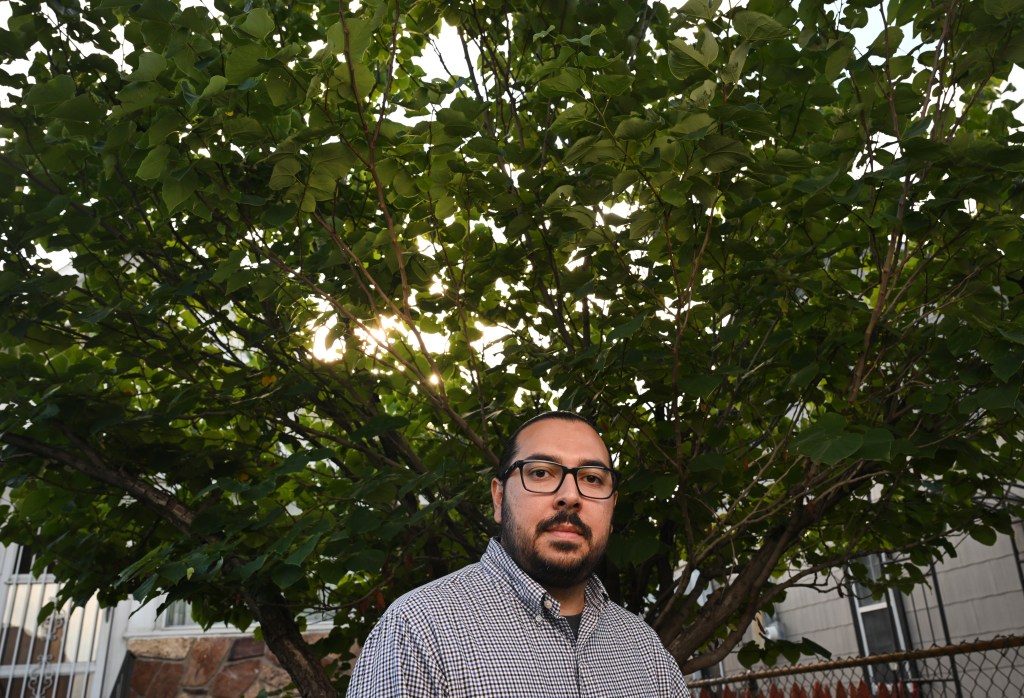
As Denver gentrifies, urban education crisis moves to the suburbs
[ad_1]

Fourteen years ago, I had just graduated from Denver North High School with big dreams, which I described in a column in these pages of The Denver Post.
By some measures, it had been a challenging journey to reach that milestone and earn my Denver Public Schools diploma.
My mother died when I was five, and I was raised by my grandparents in Denver’s Globeville neighborhood, which The Post had called “the state’s most polluted urban ZIP code.”
I wrote in 2009:
“Unfortunately, Globeville is a long way from the parks and public buildings that (Mayor) Speer helped build with his City Beautiful movement.
“In our neighborhood, trees are harder to find.
“So, four years ago, I took matters into my own hands and bought a little sapling and planted it in our yard. It was a skinny and bare little tree — it didn’t even reach my shoulders — but I knew that if we took good care of it, it could some day produce thousands of green leaves, with its branches reaching for the sun and shading our house.
“Like the sapling, I started my life small and vulnerable. I needed help to grow strong and tall — physically and mentally.
“My mother and then my grandparents tended to me. But I also got help from my teachers, counselors and coaches along the way.”
While I attended North, the school district was in an endless cycle of education reforms that did not improve education for me or my classmates. In fact, many of the reforms of that era made it harder for my peers and me to receive quality and consistent education.
These reforms resulted in constant staff turnover at my high school. During my four years at North, the school was led by three different principals, and the entire faculty had to re-apply for their teaching positions. Year after year, North students had to adjust to a new regime with new administrators and teachers. This came at a time when my peers and I needed consistency in the adult role models that we had in our lives.
Despite the challenges, we benefited from a strong community of support at North. We had access to many high-quality courses, committed guidance counselors, and a wide array of non-profit programs from Goodwill Industries, Colorado Uplift, the DPS Foundation, Denver Health, the North Side High School Alumni Association, and Rocky Mountain Junior Achievement.
Many of my classmates came from humble backgrounds, and they’re now succeeding in their careers, working in education, real estate, medicine, for the city, and in finance and banking.
I earned a Gates Millennium Scholarship from the Bill and Melinda Gates Foundation. It opened up many doors for me in higher education.
I started at the University of Wisconsin-Madison where I earned a bachelor’s degree in political science. Then I went to Teachers College, Columbia University, where I earned a master’s degree in Education Policy. This spring, I earned my Ph.D. in Education Leadership and Policy Studies from the University of Denver.
Because of my experience in DPS classrooms, I spent the bulk of my postsecondary studies examining public policy and education leadership. I was interested in how we, as a society, could do better for the next generation of students.
While many of my North peers have succeeded in life and careers, many have had to move from the rapidly gentrifying North enrollment area to afford a home. The dream of raising a family in the neighborhood we grew up in has not been realistic, even for those of us who are college graduates, some with advanced degrees.
My high school classmates are not alone. My Ph.D. dissertation highlighted that many hard-working families have been forced from Denver to surrounding communities because of rising housing prices.
While DPS – my current employer – gets much of the attention from the media and philanthropic funders, many inner-ring suburban districts are largely ignored.
Sheridan, Englewood, Adams 12 and Adams 14, eastern Jeffco Public Schools, Westminster Public Schools and Aurora Public Schools are facing more of the issues historically associated with urban school districts.
However, unlike DPS, some of these school systems do not have the resources and personnel to address these issues in a constructive manner that benefits their students.
In short, the urban education issues are not confined to DPS, yet these inner-ring districts don’t get the attention or resources they need. This is important as many of those school systems historically never intended to serve the students who are now flocking into their classrooms.
We cannot ignore these shifts, as doing so will only perpetuate harm to our most vulnerable students. Leaders and educators throughout the metro area must find ways to work across boundary lines to ensure our students are supported when they live through these shifts.
Isaac S. Solano, Ph.D. is a Denver native who still lives in the Globeville neighborhood. He is proud to live in the home he grew up in and his grandparents owned since the 1980s. Solano is an educational researcher and administrator. He works for DPS as the manager of leader development. While earning his master’s and Ph.D., he spent thousands of hours researching in school districts all over Metro Denver.
Sign up for Sound Off to get a weekly roundup of our columns, editorials and more.
To send a letter to the editor about this article, submit online or check out our guidelines for how to submit by email or mail.
[ad_2]
Source link




